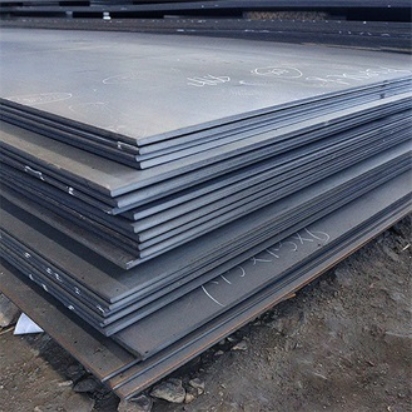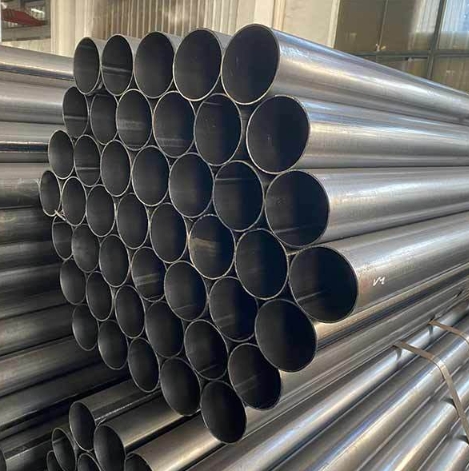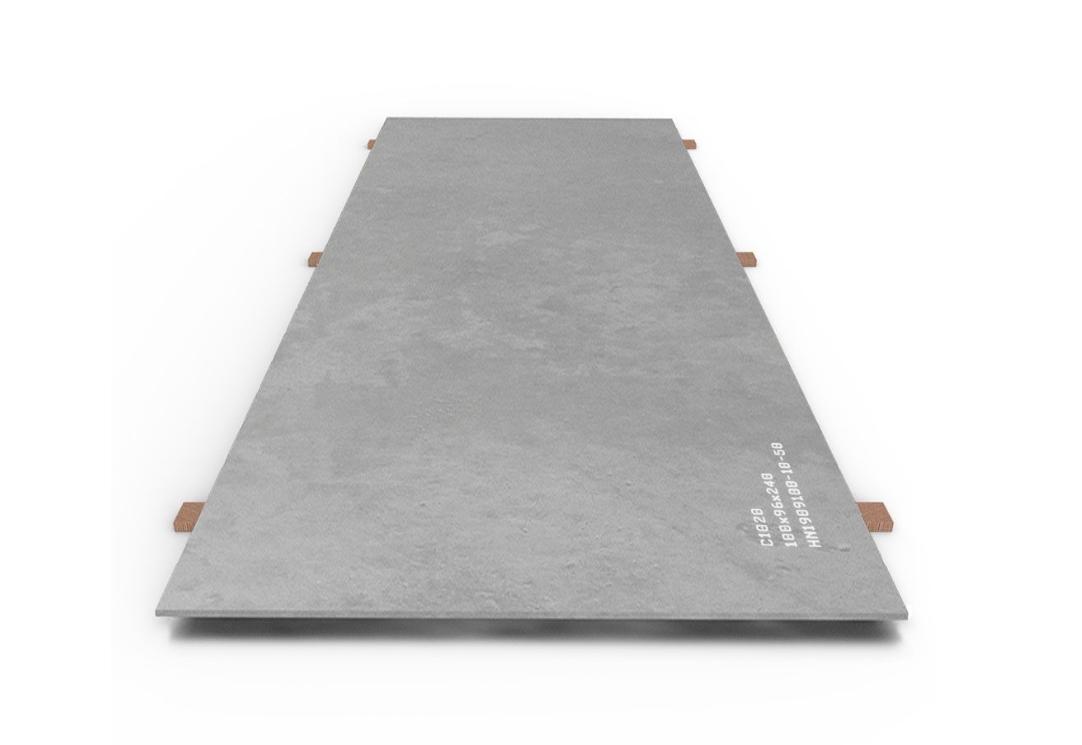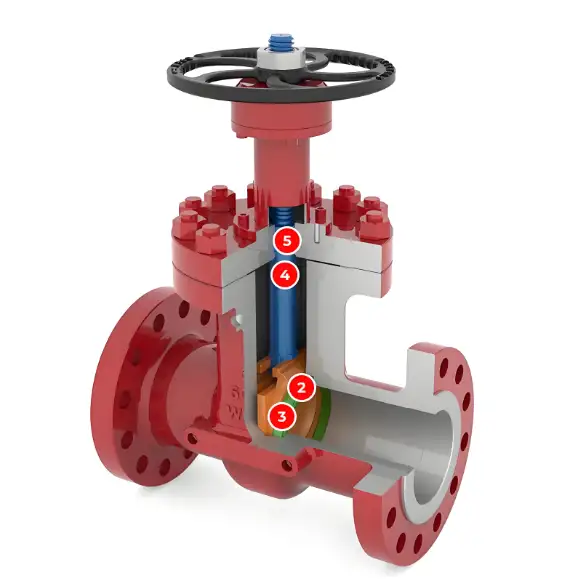Based on current standards, market reports and supplier quotes, ASTM A710 plates in 2025 are trading broadly between USD 700/ton (China FOB, lowest small-lot offers) and USD 1,200–1,800/ton (delivered, regional market levels for certified quenched & tempered plate) depending on grade, thickness, heat-treatment, certification, and logistics. Buyers seeking reliable quality, mill traceability and fast delivery will find the best combined value from full-service Chinese manufacturers such as Luokaiwei who offer factory pricing, custom processing and ready stock.
What is ASTM A710?
ASTM A710 / A710M is the standard specification that covers precipitation-strengthened, low-carbon nickel-copper-chromium-molybdenum-columbium alloy structural steel plates furnished in the quenched and tempered condition. The standard defines chemical limits, heat-treatment requirements, mechanical property minima, acceptance testing and marking. A710 is used where a combination of high yield, toughness and weldability is required in heavy plates.
Chemistry: low-carbon with targeted alloying
A710 steels are intentionally low in carbon (typically ≤0.07% for Grade A) and rely on a mix of alloying elements—Cu, Ni, Cr, Mo, small Nb/columbium and sometimes Ti—to achieve high strength through precipitation hardening rather than high carbon content. This composition preserves toughness and weldability while enabling high yield strength after appropriate aging/heat treatment. Practical supplier sheets show the elemental windows used by mills.
Heat treatment: quench, temper and precipitation strengthening
Manufacture of A710 plate includes controlled hot rolling followed by precipitation heat treatment (also called aging or age hardening). In practice the plate is quenched and tempered, then subjected to a controlled aging cycle to precipitate fine intermetallic particles that block dislocation motion and raise yield strength without compromising ductility. This route produces a favorable strength-vs-toughness balance for structural, marine and pressure applications. For designers, this means A710 often offers higher yield for similar formability compared with plain low-alloy steels.
Mechanical properties and typical grades
ASTM A710 defines multiple designations (Grade A, Grade B, sometimes sub-classes by strength). Typical characteristic strengths reported by suppliers:
-
Yield strength: commonly in the 480–550 MPa (≈70–80 ksi) band depending on grade and thickness.
-
Tensile strength: often 655–900 MPa (≈95–130 ksi) depending on heat treatment.
-
Elongation & toughness: engineered to maintain good elongation and Charpy V-notch toughness at moderate low temperatures when required.
Always request mill test certificate (MTC) showing the actual yield/tensile and Charpy results for the lot.
Key applications and where A710 is chosen
Common uses of A710 include: shipbuilding panels and structural members, heavy fabrication frames, pressure module structural plates, offshore structures, bridge and rail components where high yield and controlled toughness are necessary, and any application where welding, toughness and high strength must be balanced. A710 competes with Q&T grades such as ASTM A514 (where higher carbon/harder options are acceptable) but A710’s low carbon/precipitation route often gives better weldability.
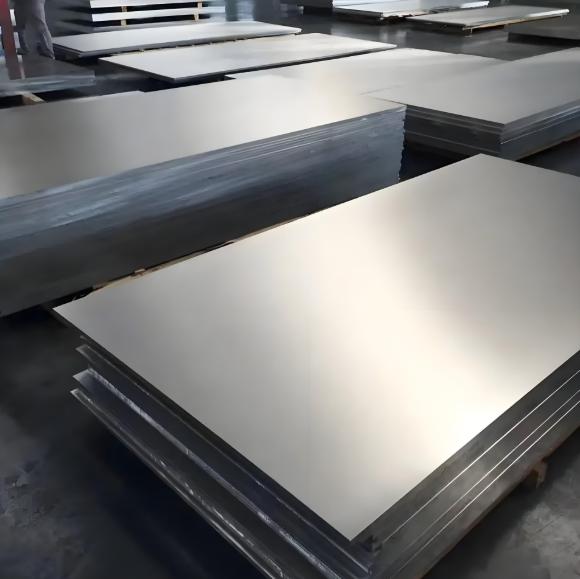
Fabrication notes — welding, forming, NDE and repair
Short, practical points we use in procurement and shop planning:
-
Welding: low-carbon chemistry improves weldability, but follow preheat/interpass and post-weld heat treatment (PWHT) practices required by codes and the purchaser’s weld procedure specification (WPS). Use qualified filler metals matched to required toughness/strength.
-
Forming: hot rolling gives good coarse formability; cold bending depends on thickness and required bend radius. Check supplier bend test data.
-
Machining: A710 machines like other low-alloy plates, but machining allowances are needed for quenched surfaces.
-
NDE: magnetic particle inspection (MPI) or ultrasonic testing (UT) per contract is common; require MTC and traceability for critical plates.
Designers should request explicit recommendations from the mill for weld procedures; that minimizes rejects and rework.
Corrosion & coatings — service protection
A710 is a structural alloy, not a corrosion-resistant stainless type. For corrosive exposures (marine, chemical) apply appropriate coatings (epoxy, hot-dip galvanizing when compatible with strength/heat treatment), or consider sacrificial anodes/cathodic protection for immersed service. For long service life in aggressive environments, combination of A710 structural strength and a corrosion control system is typical.
2025 global price comparison — practical table (USD/ton)
Notes: prices vary with order quantity, thickness, surface finish, certificates (e.g., API, Lloyd’s, ABS), delivery INCOTERMS, and electrical/energy surcharges. Use the table as a procurement starting point, not a firm quote. Sources: Chinese FOB listings, international market trackers and distributor pages.
| Region / Market | Typical 2025 price (USD / metric ton) | Typical unit & notes |
|---|---|---|
| China — factory/FOB (small lot) | USD 700 – 900 / t | Lower-end FOB offers seen on wholesale platforms (small lots, basic MTC). Source: marketplace listings. |
| China — direct mill supply (large lot, certified) | USD 850 – 1,100 / t | Full-certification, custom ageing/processing, export packaging, CNF/FOB. |
| Southeast Asia (imported) | USD 900 – 1,300 / t | Import duty, freight added; depends on local distribution. |
| Europe (distributor, ex-works) | USD 1,100 – 1,800 / t | Includes quality assurance, CE/EN conversions, VAT exclusions vary. Market trackers show higher regional spreads. |
| North America (domestic/distributor) | USD 1,100 – 1,700 / t | Distributor inventory, processing, delivery; US domestic plate markets are subject to CWT quoting methods. |
| Middle East / Africa (imported) | USD 950 – 1,500 / t | Logistics and duties vary by country; projects often procure from China or Europe. |
| Online retail / spot (small pieces) | USD 0.40 – 1.20 / lb | Retailized pricing can look expensive due to small lots and cutting fees. |
Interpretation: the table shows a roughly 2× price envelope between the lowest small-lot FOB China offers and delivered certified plate in Western markets. Large project buyers who accept Chinese mill MTCs and audit the manufacturer can access the lower half of the range.
Price drivers in 2025
Short list of what buyers must control:
-
Certification & testing — full MTCs, Charpy V-notch testing, NDT, and third-party inspection raise cost.
-
Thickness & plate size — thicker plates and oversized dimensions increase melt/processing cost.
-
Heat treatment complexity — special ageing cycles or extra tempering add time and cost.
-
Quantity & contract terms — larger lots and long-term agreements reduce per-ton price.
-
Freight & insurance — ocean freight spikes can add $30–$150/t depending on route.
-
Energy & raw materials — electric arc furnace energy costs and scrap availability influence mill offers.
How to buy — practical spec & procurement checklist
We recommend the following items in your RFQ/PO to avoid surprises:
-
Reference standard: ASTM A710 / A710M — state edition or year.
-
Grade & required yield/tensile (e.g., Grade A 80 ksi yield) and required Charpy temperature if applicable.
-
Thickness range and plate sizes; specify flatness/edge/finish requirements.
-
Heat treatment: “quenched & tempered, precipitation-treated per ASTM A710” and require mill aging records.
-
Documentation: full MTC per EN 10204-3.1 or equivalent, chemical analysis, heat number traceability.
-
Inspection: UT/MPI acceptance criteria, third-party inspection if needed.
-
Packaging & marking: seaworthy export packaging, mill stamping and paint.
-
Delivery term: FOB/CNF/CIF/Delivered to site (specify port or site).
-
Warranty & acceptance tests: include hold-points and remedy for rejects.
Ask your supplier for sample plate(s) or a test coupon with full MTC before the main production run for critical projects.
Why choose Luokaiwei
We recommend Luokaiwei for buyers seeking consistent supply from China because:
-
Factory direct pricing: we operate manufacturing relationships and can offer 100% factory price advantages on many mills/stock items.
-
Customization: we support tailored chemistry windows, thicknesses, surface treatments and special ageing cycles.
-
Fast stock delivery: for common sizes we maintain stock or fast access to mill stock, enabling rapid shipment of small to medium lots.
-
Full documentation: standard MTCs and optional third-party inspection are available.
-
Global logistics: we can manage export packaging, sea freight booking, and CIF/DDP arrangements on request.
If you need a firm quote, give us required grade, thickness, quantity and preferred INCOTERM; we will respond with factory lead time and exact pricing for your lot.
Risk management & quality assurance
We emphasize these actions when purchasing A710:
-
Audit the mill or ask for recent quality audit reports (ISO 9001, mill accreditation).
-
Request heat traceability from slab/heat to final plate and verify via MTC.
-
Hold armored testing — require Charpy V-notch and macro/micro reports for critical loads.
-
Specify acceptance criteria: UT acceptance levels, max lamination depths, and acceptable surface tolerances.
-
Plan for repair & rejects: require supplier corrective actions and replacement timelines in contract.
FAQs
Q1 — Is A710 the same as A514?
No. Both are Q&T style high-strength plates, but A514 traditionally uses higher carbon and alloy balances aimed at weldable high-strength structural plate, whereas A710 uses low carbon and precipitation strengthening (Cu/Ni/Cr/Mo/Columbium) which tends to improve weldability and low-temperature toughness. Choose based on welding requirements and toughness spec.
Q2 — What certificates should I insist on?
Require an MTC (mill test certificate) showing full chemical and mechanical results, heat number traceability, and any Charpy impact or NDT records. For critical projects add third-party inspection.
Q3 — Can A710 be hot-dip galvanized or coated?
Yes, but coordinate with the mill: certain heat treatments and post-treatment conditions can affect coating adhesion. For marine applications we recommend epoxy or multi-coat systems plus cathodic protection if immersed.
Q4 — How much does thickness affect price?
Substantially. Thicker plates require longer heat cycles and more rolling/disc processing; expect higher per-ton cost for very thick plates and for oversized widths/lengths.
Q5 — Is spot market pricing reliable for budgeting?
Spot listings are useful for estimates but are volatile. For project budgets, obtain firm mill quotes with specified lead times and include contingency for freight and tariffs. Market trackers and distributor pages are helpful to benchmark.



